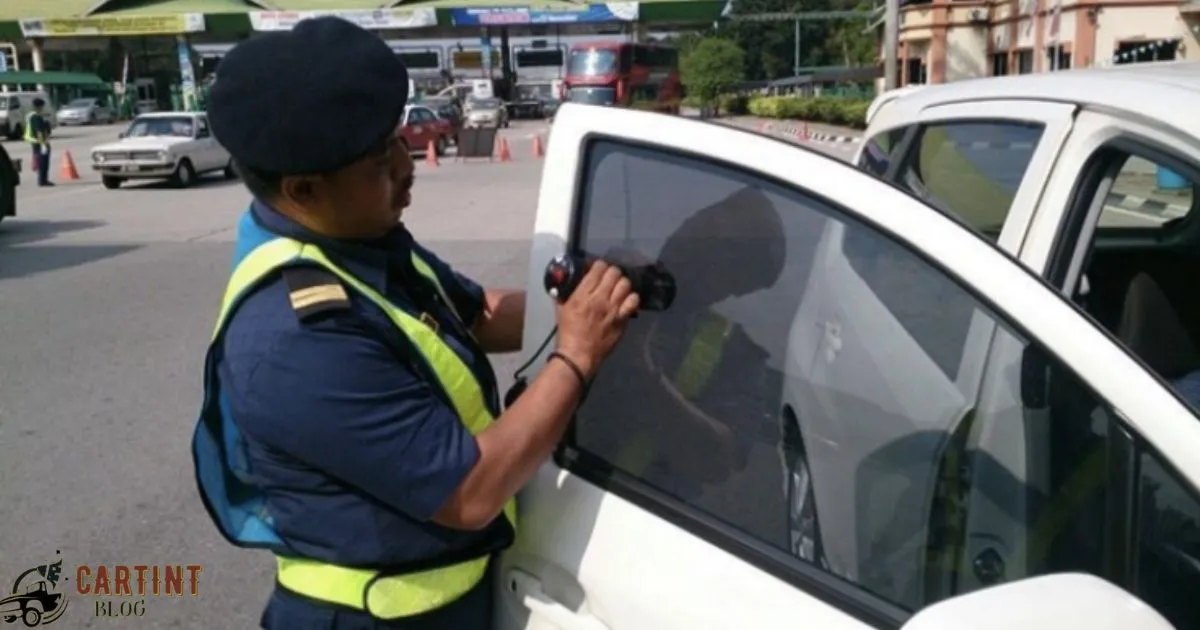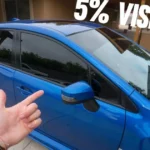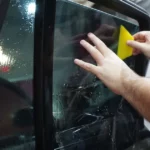In general, law enforcement may search your vehicle if they have a reasonable suspicion that a crime is being committed. Tinted windows can raise concerns as they may hinder visibility, posing a potential safety risk. However, the legality of such searches varies, and it’s essential to understand your rights about tinted windows and vehicle searches.
Can police search your car for tinted windows? This question underscores the intersection of personal privacy and law enforcement authority. The legality of such searches depends on jurisdictional laws, and individuals should be aware of their rights during traffic stops. Understanding the nuances surrounding tinted windows and vehicle searches is crucial for anyone navigating encounters with law enforcement.
Do the law allow police to search your car for tinted windows? The regulations governing the search of vehicles with tinted windows differ across jurisdictions. Some places may have specific laws regulating window tint darkness, while others may grant police the authority to inspect window tints during routine traffic stops. Being informed about local laws regarding tinted windows can help individuals navigate encounters with law enforcement and ensure they are aware of their rights in such situations.
Legal Implications of Police Officers Examining Tinted Car Windows
When police officers inspect tinted car windows, they must adhere to legal guidelines. They cannot automatically search your car solely based on tinted windows. However, if they have reasonable suspicion of criminal activity or another valid reason, they may search.
The legality of searching a car with tinted windows hinges on probable cause. Without proper justification, such searches violate privacy rights. Individuals need to be aware of their rights and for law enforcement to uphold these rights when examining tinted car windows.
Are Tinted Windows Probable Cause?
Tinted windows alone are not typically probable cause for a police search of your car. The presence of tinted windows doesn’t automatically give law enforcement the right to search your vehicle.
If the tint is excessively dark and violates local regulations, it may lead to a traffic stop, giving the police an opportunity to inspect your car for compliance.In general, it’s essential to be aware of and adhere to tinting laws in your area to avoid unnecessary attention from law enforcement.
While tinted windows alone may not be a reason for a search, being informed about local regulations can help you prevent potential issues during routine traffic stops. Keep your tint within legal limits to ensure a smoother and hassle-free driving experience.
How Can Police Determine if a Car has Tinted Windows?
Police officers can check for tinted windows by visually inspecting the car. They use their judgment to determine if the windows are darker than the legal limit. This assessment helps them decide whether further action, such as a traffic stop or citation, is necessary.
If police have a reason to suspect illegal window tint, they may pull over the vehicle. During a traffic stop, officers can approach the car and physically measure the window tint to ensure it complies with regulations. This direct approach allows law enforcement to enforce window tint laws effectively.
Visual Inspection Methods for Tinted Windows
Visual inspection methods for tinted windows involve law enforcement officers visually assessing the darkness of the window tint on vehicles. Police officers typically use a tint meter, a device that measures the percentage of light transmission through the windows.
This allows them to determine whether the tint level complies with the legal limits set by local regulations. Concerning the question of whether police can search your car for tinted windows, it’s important to note that tinted windows alone may not be a sufficient reason for a search.
If an officer observes other suspicious behavior or has reasonable suspicion of criminal activity, they may have grounds to conduct a search, with the tinted windows serving as one factor among others. Understanding local laws regarding window tinting is crucial to ensure compliance and avoid potential legal
The Legality of Police Searches for Tinted Car Windows
In most places, police can stop and search a car if they have a reasonable suspicion of illegal activity. This includes checking for tinted windows that violate local regulations. If your car windows are too dark, you may be subject to a search, as it could be considered a violation of traffic and safety laws.
It’s essential to know and comply with local laws regarding window tinting to avoid potential legal issues. Understanding the regulations in your area helps ensure that you won’t face unnecessary searches or penalties related to tinted car windows. Stay informed about these rules to protect your rights and maintain a hassle-free driving experience.
Law Enforcement Practices and Vehicle Regulations
Law enforcement often checks vehicles for tinted windows. If the police notice excessively dark window tint during a routine stop, they can legally search your car. Vehicle regulations vary by jurisdiction, so it’s crucial to be aware of the tinting laws in your area.
Remember, complying with these regulations helps avoid unnecessary searches and potential legal issues. Understanding law enforcement practices regarding tinted windows is essential. In many places, police have the authority to stop and search a vehicle if they suspect the windows are too dark.
Staying informed about local vehicle regulations and ensuring your window tint complies can prevent unwanted attention from law enforcement and maintain a smooth driving experience.
Let’s use three specific states in the United States as examples and provide additional information about their law enforcement practices and vehicle regulations regarding tinted windows:
| State | Law Enforcement Practice | Vehicle Regulation |
| California | Routine checks for window tint during traffic stops. | Maximum allowable tint: 70% for front side windows; any darkness for rear side and rear window. Windshield must allow over 70% of light transmission. |
| Specific regulations for reflective tint and color restrictions. | ||
| Texas | Police can stop and search for dark tinted windows. | Tint darkness limit: 25% for front side windows; any darkness for rear side and rear window. Windshield can have non-reflective tint above the manufacturer’s AS-1 line. |
| Exemptions for medical necessity with proper documentation. | ||
| New York | Search allowed if excessively dark tint. | Strict limit: 70% maximum tint for all windows, including the windshield. No tint on the front windshield except for the top 6 inches. |
| Exemptions for medical conditions with proper certification. |
Please note that the information provided is a generalization for illustrative purposes, and actual regulations may vary within each state.
The Legal Landscape of Tinted Car Windows and Police Searches
The legal status of tinted car windows varies, and police often have the authority to search a vehicle if they suspect illegal activity. In many jurisdictions, excessively dark window tints can obstruct visibility and raise concerns about safety.
If police officers suspect that tinted windows violate regulations, they may conduct a search without a warrant. This keyword, Dealership Sell A Car With Illegal Tint, highlights the responsibility of dealerships in ensuring compliance with tinting laws, ultimately preventing buyers from facing legal repercussions due to illegally tinted windows on their purchased vehicles.
While some areas have specific regulations on acceptable window tint levels, others leave it to the discretion of law enforcement. Being aware of the rules in your jurisdiction can help you navigate encounters with the police and prevent unnecessary searches related to tinted car windows.
Your Rights and the Significance of Local Regulations
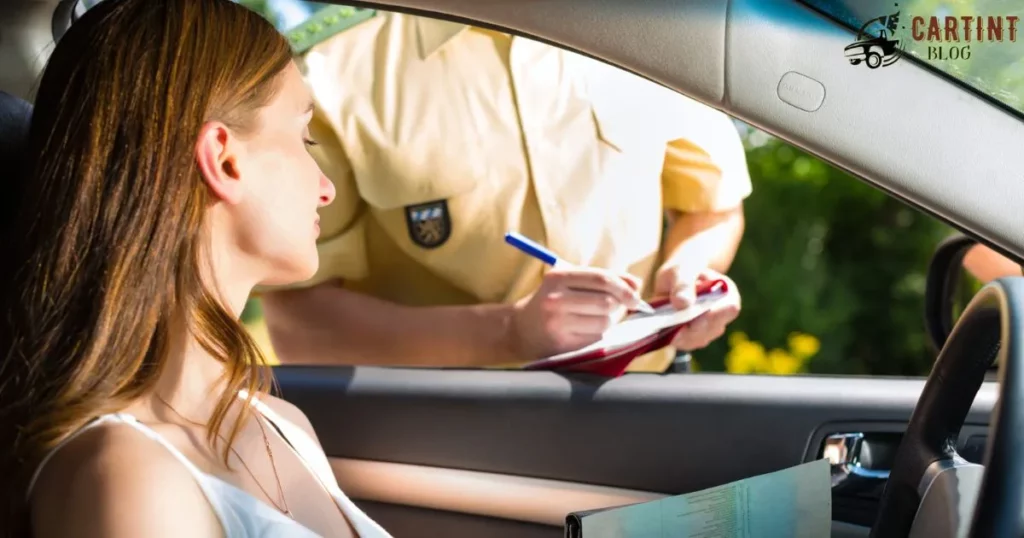
Your rights are crucial, especially when it comes to local regulations. In the context of tinted car windows, it’s essential to know that the police cannot search your car solely based on tinted windows.
Local laws determine the acceptable tint levels, and as long as you comply, your car is protected from unwarranted searches.Understanding the significance of local regulations empowers you to assert your rights confidently.
If your car windows meet the prescribed tint limits, police cannot search your vehicle without proper cause. Stay informed about local laws to ensure your rights are respected, and you can navigate encounters with law enforcement more
Tinted Window Regulations by State in the United States
- Tinted window regulations vary across U.S. states.
- Police can search your car for tinted windows, but laws differ.
- In some states, any tint on front windows is illegal.
- Others allow a certain percentage of visible light transmission.
- Check your state’s specific tinting rules to avoid fines.
- Understanding local laws helps prevent unnecessary searches.
- Stay informed to ensure your tint complies with regulations.
- Adhering to guidelines can help you avoid legal issues.
Can Police Check Window Tint at Night?
Yes, police can check window tint at night. If your car has tinted windows, officers may inspect it during traffic stops. They typically use a handheld device to measure the level of tint, ensuring it complies with local regulations.
Having tinted windows doesn’t automatically give police the right to search your car. If they have a valid reason, such as suspicion of illegal activities, they may search. It’s essential to be aware of tinting laws in your area and ensure your car complies to avoid potential issues with law enforcement.
Can a Cop Pull You Over Just for Window Tint?
Yes, a cop can pull you over specifically for window tint. Police officers often use this as a reason to stop vehicles, as excessive tint can impede their ability to see inside the car.
If your window tint violates the law, it gives the police a valid cause to initiate a traffic stop.Regarding police searching your car for tinted windows, it’s crucial to note that having illegal window tint may give them probable cause for a search.
If during the traffic stop they suspect other criminal activity or see something in plain view, they may extend the search beyond the tint issue. So, while window tint alone can lead to being pulled over, it might also open the door to further scrutiny by law enforcement.
Can a Cop Pull You Over for Tint If Your Windows Are Down?
Yes, a police officer can pull you over for tinted windows even if they are down. The level of window tint is regulated by law, and if it exceeds the allowed limit, you may be stopped by the police.
The visibility of tinted windows is a concern for law enforcement, and they have the authority to enforce regulations for public safety.If a police officer stops you for tinted windows, they may also have the right to search your car.
The legality of the search depends on whether the officer has reasonable suspicion or probable cause. Tinted windows can raise suspicions, leading to further inspection. It’s essential to be aware of local laws regarding window tinting to avoid potential legal issues during a traffic stop.
Are Tinted Windows Legal in the USA?
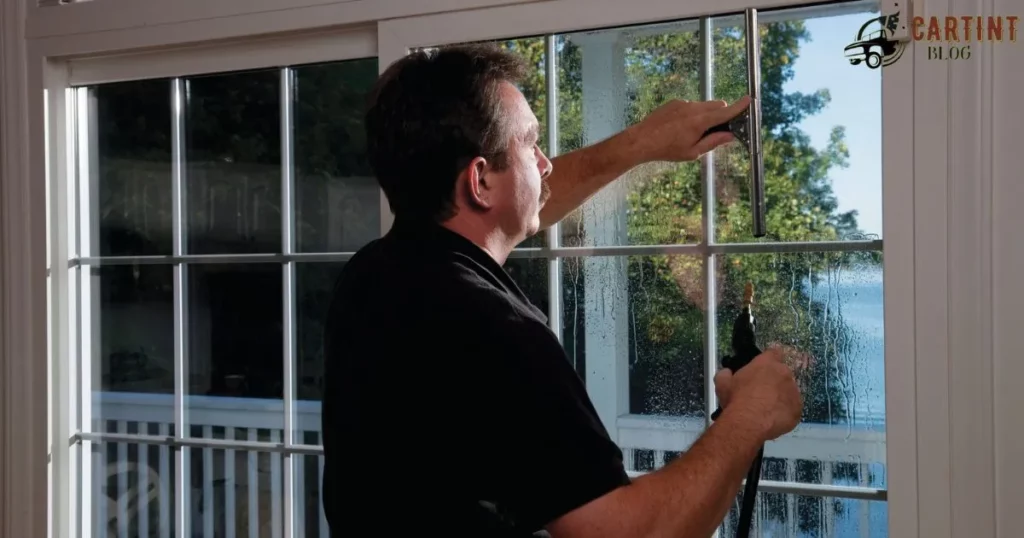
Tinted windows are legal in the USA, but regulations vary by state. However, police can stop and search your car if they suspect the tint violates local laws. It’s crucial to be aware of your state’s specific tinting regulations to avoid potential issues.
If police notice excessively dark tint during a routine stop, they have the authority to inspect your windows. Non-compliance may result in fines or having to remove the tint. Stay informed about local laws to ensure your car’s windows meet the legal standards and prevent any unnecessary encounters with law enforcement.
What’s the Darkest Legal Tint Allowed in the USA?
For passenger cars, rear side windows or rear window tint may not reduce the total light transmission of such window by 35%. and the tint of front windows may not reduce the total light transmission of such window by 50%.
In the USA, the darkest legal tint for car windows varies by state. Some states allow a lower visible light transmission percentage than others. It’s essential to check your state’s regulations to ensure compliance and avoid potential legal issues.
When it comes to police searching your car for tinted windows, officers can have probable cause if the tint violates state laws. If your windows are too dark, it may lead to a traffic stop, and the police could conduct a search based on the violation.
Can People See Through Tinted Windows?
Yes, people can see through tinted windows, but the level of visibility depends on the tint’s darkness. Darker tints make it harder for outsiders to see inside a car, providing more privacy.
Excessively dark tints might attract attention, especially from law enforcement.
When it comes to police searching your car for tinted windows, regulations vary.
Some places have specific laws regulating window tint darkness, and if your tint exceeds the legal limit, it could lead to a traffic stop. During a stop, police may inspect the tint and, if necessary, ask you to remove it or issue a citation. It’s essential to be aware of local tinting laws to avoid any legal complications.
What Is the Best Tint Percentage for a Front Windshield in the USA?
Choosing the right tint percentage for your front windshield in the USA is crucial. In most states, the law allows a non-reflective tint on the top portion of the windshield, commonly known as the “sunstrip,” with a limit of around 4 to 6 inches.
This provides shade without obstructing the driver’s view, ensuring safety on the road.Regarding police searches for tinted windows, it’s essential to adhere to local regulations. Excessive tint can draw attention, and some states have specific rules on how dark tints can be.
If your car windows violate these rules, law enforcement may have grounds to search your vehicle. Staying informed about tint regulations helps avoid unnecessary complications during routine traffic stops.
| State | Tint Percentage for Front Windshield | Additional Regulations |
| Alabama | Non-reflective tint above AS-1 line | 6 inches from the top of the windshield |
| California | Non-reflective tint on top 4 inches | No opaque or mirrored tint |
| Florida | Non-reflective tint above AS-1 line | No material that alters reflective or transparent nature |
| New York | Non-reflective tint on top 6 inches | No red, amber, or blue colors |
| Texas | Non-reflective tint above AS-1 line | 5 inches from the top of the windshield |
| Illinois | Non-reflective tint on top 6 inches | No mirrored or metallic tint |
| Ohio | Non-reflective tint above AS-1 line | No red, amber, or blue colors |
| Arizona | Non-reflective tint on top 5 inches | No mirrored or metallic tint |
| Georgia | Non-reflective tint above AS-1 line | 6 inches from the top of the windshield |
| Pennsylvania | Non-reflective tint on top 5 inches | No mirrored or metallic tint |
Tint regulations may vary, and it’s important to check the latest state laws for accurate and up-to-date information. Always comply with local regulations to avoid legal issues.
Are Tinted Windows Probable Cause?
Tinted windows alone usually aren’t probable cause for a police search. Officers generally need a valid reason, like observing illegal activity or a traffic violation, to search your car. Simply having tinted windows typically isn’t enough to justify a search under the law.
Laws regarding tinted windows vary by jurisdiction. Some places have specific regulations on window tint darkness. If your tint violates these rules, it could give police a reason to pull you over and, if necessary, conduct a search. So, while tinted windows alone might not be probable cause, it’s essential to be aware of and comply with local tinting laws to avoid any legal issues.
Precedents Establishing Tinted Windows as Probable Cause
Precedents in legal cases suggest that tinted windows can be considered probable cause for a police search. Courts have consistently ruled that visibility into a vehicle is crucial for law enforcement safety.
If your car has heavily tinted windows, it may attract police attention, potentially leading to a search based on the established legal precedent.The question of whether police can search your car for tinted windows underscores the balance between individual privacy and public safety.
Recent legal decisions emphasize the need for officers to assess potential risks during traffic stops. As a result, having heavily tinted windows could invite scrutiny and potentially grant the police the authority to search your vehicle under the established legal framework.
Legal Challenges to Tinted Windows as Probable Cause
Some people question if tinted windows can be a valid reason for police to search your car. Critics argue that using tinted windows as probable cause raises legal concerns. They contend that such searches may infringe on individuals’ privacy rights and require clearer legal guidelines.
The debate over police searches based on tinted windows underscores the need for a balance between law enforcement interests and citizens’ rights.
Advocates for clearer regulations emphasize the importance of avoiding arbitrary searches and ensuring that law enforcement actions align with established legal principles. As discussions continue, the legal landscape surrounding tinted windows and probable cause remains an evolving and debated topic.
How Can Police Determine if a Car has Tinted Windows?
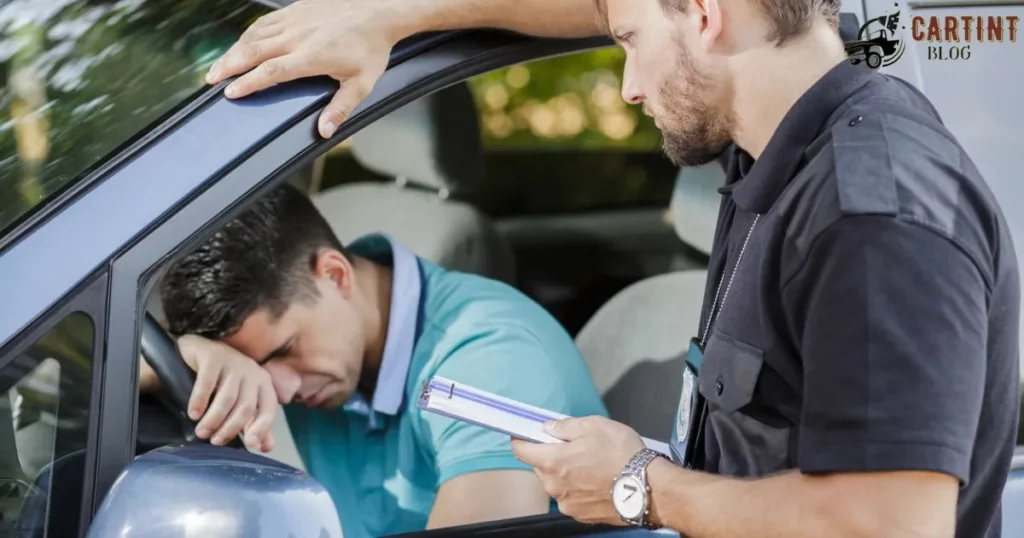
Police check cars for tinted windows visually. They look for windows that are too dark, which may violate local tinting laws. If windows seem too tinted, police may pull over the car to inspect and measure the window tint.
However, police cannot search your car just for tinted windows. They need a valid reason, like a traffic violation or suspicion of a crime. Tinted windows alone are not grounds for a search, but if the tint violates the law, you may receive a citation or be asked to remove the tint to comply with regulations.
Visual Inspection Methods for Tinted Windows
Visual inspection methods help law enforcement determine if car windows are tinted beyond legal limits. Police officers use a tint meter to measure the darkness of the window tint. This tool ensures compliance with regulations and prevents excessive tinting that may hinder visibility.
Concerns about privacy often arise regarding police searches for tinted windows. Understanding your rights is crucial; generally, police can inspect window tint during routine traffic stops if there is reasonable suspicion. Being aware of local regulations and maintaining compliance can help avoid unnecessary searches and legal complications.
Here’s a simple table summarizing the information about Visual Inspection Methods for Tinted Windows, with a focus on whether police can search your car for tinted windows:
| Aspect | Details |
| Purpose | Determine legality of window tinting and ensure compliance with regulations. |
| Inspection Tool | Tint meter used by police officers to measure the darkness of window tint. |
| Prevention | Aims to prevent excessive tinting that may hinder visibility and compromise safety. |
| Privacy Concerns | Individuals often express concerns about privacy during police searches for tinted windows. |
| Rights Awareness | Knowing your rights is crucial; police may inspect window tint during routine stops with reasonable suspicion. |
| Legal Compliance | Adhering to local regulations helps avoid unnecessary searches and legal complications. |
| Routine Traffic Stops | Inspection may occur during routine stops if there is reasonable suspicion of illegal tinting. |
Technological Tools for Identifying Tinted Windows
Technological tools play a crucial role in helping law enforcement identify tinted windows during car inspections. Officers use specialized devices that measure light transmission through windows, ensuring compliance with tinting regulations. These tools empower police to efficiently enforce the law and maintain road safety.
| Technological Tool | Description |
| Tint Meters | Tint meters are handheld devices that measure the amount of light passing through car windows. Officers use these meters to quickly assess if the tint level complies with legal standards. Tint meters are portable and offer a precise reading, facilitating efficient on-the-spot enforcement. |
| Infrared Thermography | Infrared thermography utilizes infrared cameras to detect temperature differences in window glass. Tinted windows often absorb or reflect infrared radiation differently, allowing law enforcement to identify vehicles with potentially illegal tinting. This non-contact method provides an additional layer of accuracy during inspections. |
| Spectrophotometers | Spectrophotometers analyze the spectral characteristics of light passing through windows. By examining the light’s wavelengths, these tools can determine the tint level on car windows. Spectrophotometers offer a scientific and objective measurement, aiding officers in enforcing tint regulations consistently. |
| UV Light Inspection | UV light inspection involves the use of ultraviolet light sources to reveal the presence and density of window tint. Illegal tints may appear darker under UV light, assisting law enforcement in identifying non-compliant vehicles. This method provides a visual and straightforward way to assess tint levels, contributing to effective policing. |
| Electronic Tint Monitoring | Some modern vehicles come equipped with electronic tint monitoring systems. These systems use sensors to measure the light transmission through windows, providing real-time data to both drivers and law enforcement. Electronic tint monitoring enhances transparency and awareness, allowing drivers to ensure compliance and assisting officers during inspections. |
This table provides an overview of various technological tools used by law enforcement for identifying tinted windows, highlighting their specific features and functions in ensuring compliance with tinting regulations.
Your Rights and the Significance of Local Regulations
- Understanding Your Rights
- You have the right to privacy in your car.
- The Fourth Amendment protects you from unreasonable searches and seizures.
- Significance of Local Regulations
- Local regulations may vary regarding tinted windows on cars.
- Knowing and adhering to these regulations is crucial to avoid legal issues.
- Can Police Search Your Car for Tinted Windows?
- Police can search your car if they have probable cause, like seeing illegal items.
- Understanding local laws on window tinting helps protect your rights during traffic stops.
- Being Informed is Key
- Stay informed about your rights and local regulations.
- This knowledge empowers you to navigate encounters with law enforcement confidently.
FAQs
Are tinted windows illegal in all areas?
Tinted window legality varies by location, with local regulations determining what is permissible.
Can police pull me over just for having tinted windows?
Police need a valid reason to pull you over, such as a traffic violation, but tinted windows alone may not be a primary reason.
Do I have the right to refuse a search for tinted windows?
Yes, you have the right to refuse a search unless the police have probable cause or a warrant.
What should I do if pulled over for tinted windows?
Stay calm, be polite, and provide required documents. You can inquire about the reason for the stop.
Can I challenge a search based on tinted windows in court?
If you believe the search was unlawful, you can consult with a legal professional to explore your options for challenging it in court.
Conclusion
Understanding your rights in situations involving tinted car windows is essential. By grasping the limitations imposed by the Fourth Amendment, you can appreciate the protection it affords against unwarranted searches.
Local regulations play a pivotal role, as they guide both law enforcement and citizens on what is permissible. As we’ve explored, police can search your car for tinted windows if there’s probable cause, emphasizing the significance of staying informed about your local laws. Being aware of your rights and the nuances of local regulations empowers you during encounters with law enforcement.
This knowledge serves as a shield, ensuring that your privacy remains respected, and interactions with the police are conducted within the bounds of the law. Stay informed, be vigilant, and exercise your rights to maintain a balance between law enforcement duties and individual freedoms.

